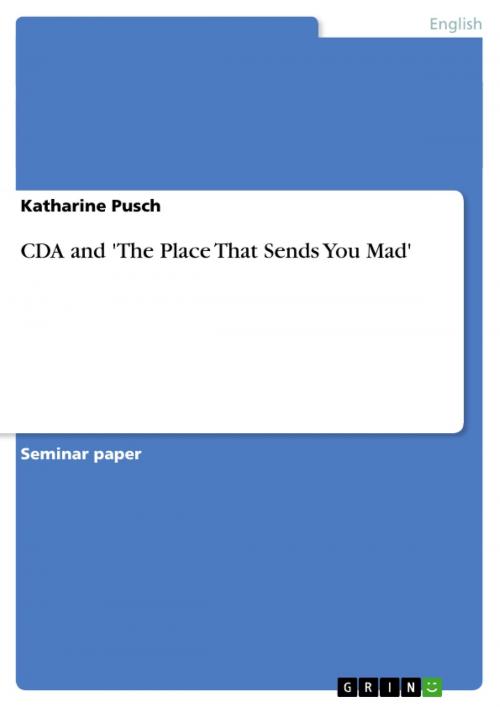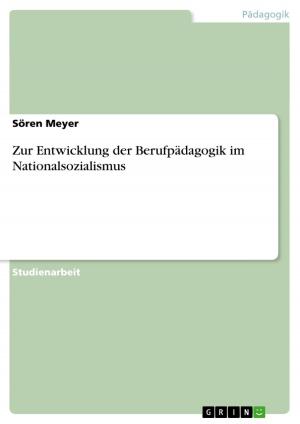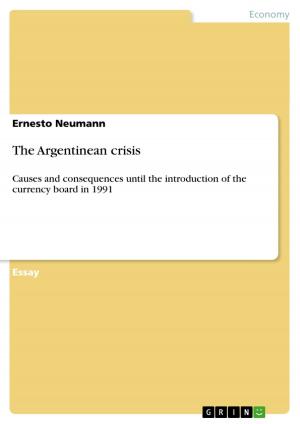| Author: | Katharine Pusch | ISBN: | 9783640313693 |
| Publisher: | GRIN Publishing | Publication: | April 22, 2009 |
| Imprint: | GRIN Publishing | Language: | English |
| Author: | Katharine Pusch |
| ISBN: | 9783640313693 |
| Publisher: | GRIN Publishing |
| Publication: | April 22, 2009 |
| Imprint: | GRIN Publishing |
| Language: | English |
Seminar paper from the year 2009 in the subject English Language and Literature Studies - Other, grade: 1,0, Leuphana Universität Lüneburg (Fakultät I), course: Seminar: Text and Discourse: Critical Discourse Analysis, language: English, abstract: During the seminar 'Critical Discourse Analysis: Text and Discourse' there were various fields of application mentioned. Bureaucracy was a very interesting one, as it is nearly an everyday necessity, especially living in Germany. The use of bureaucratic language does not only occur in institutional contexts, but 'may enter and take over the discourse practices of other domains'*, e.g. the correspondence in business companies. Since all citizens can tell their own story of a bureaucratic incident and therefore can relate to such problems, the movie-scene analyzed is a well remembered one. The thesis in hand will first give an overview about the material and present a summary of the noted movie-scene to afford a basis for the following analysis. That will concern the information exchange with clients and inside the institution, as well as the role behaviour in bureaucratic discourse. At last, it closes with some final words and the credits. *See Sarangi / Slembrouck (1996), p. 34.
Seminar paper from the year 2009 in the subject English Language and Literature Studies - Other, grade: 1,0, Leuphana Universität Lüneburg (Fakultät I), course: Seminar: Text and Discourse: Critical Discourse Analysis, language: English, abstract: During the seminar 'Critical Discourse Analysis: Text and Discourse' there were various fields of application mentioned. Bureaucracy was a very interesting one, as it is nearly an everyday necessity, especially living in Germany. The use of bureaucratic language does not only occur in institutional contexts, but 'may enter and take over the discourse practices of other domains'*, e.g. the correspondence in business companies. Since all citizens can tell their own story of a bureaucratic incident and therefore can relate to such problems, the movie-scene analyzed is a well remembered one. The thesis in hand will first give an overview about the material and present a summary of the noted movie-scene to afford a basis for the following analysis. That will concern the information exchange with clients and inside the institution, as well as the role behaviour in bureaucratic discourse. At last, it closes with some final words and the credits. *See Sarangi / Slembrouck (1996), p. 34.















